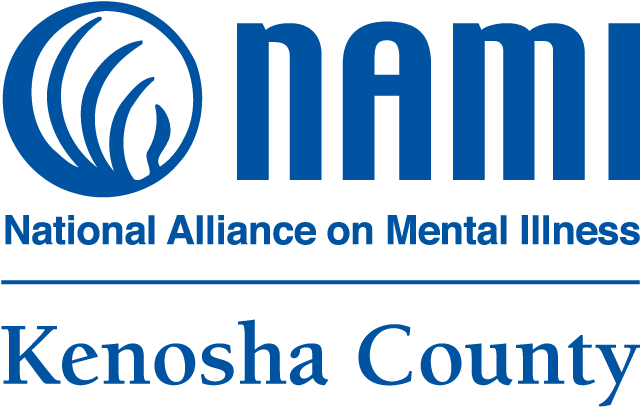Certified Peer Specialist |
Visit the WICPS website for more information and to enroll in training. www.wicps.org/
|
Wisconsin has a long history of engaging with and supporting peer inclusion in the delivery of public mental health and substance use systems of care. The Wisconsin Peer Specialist Employment Initiative embodies this engagement, though the concept of peer support existed long before a certification for professional employment began. The Wisconsin Peer Specialist Employment Initiative was launched by the Wisconsin Recovery Implementation Task Force (RITF) in December 2006.
What is a Certified Peer Specialist?
A Certified Peer Specialist provides peer support to people receiving services related to mental health and/or substance use challenges. Whether a Certified Peer Specialist works in a peer-run organization on a team entirely composed of other peer support professionals, or as part of a treatment or recovery team including clinicians and other service providers, they are active participants and colleagues with their own valuable expertise and skill-sets.
A Certified Peer Specialist is a person who has their own lived experience of mental health and/or substance use challenges and has completed formal training and certification in the peer specialist model of mental health and substance use-oriented peer support. They use their unique set of lived experiences and recovery in combination with comprehensive skills-training, including continuing education, to support people living with mental health and/or substance use challenges. Certified Peer Specialists actively center peer support and associated principles in their work, while operating under a clearly defined role and collaborate in a complementary fashion as part of an agency’s team support structure.
What is the Role of a Certified Peer Specialist?
The role of the Certified Peer Specialist can vary to an extent depending on the work environment and encompass several forms of support and assistance. Although roles may vary in agencies and organizations, it is generally recognized that Certified Peer Specialists provide the following services to people living with mental health and/or substance use challenges:
- Cultivate empowering and supportive relationships
- Use self-disclosure and their own lived experience as a valuable tool
- Provide information about community and recovery-oriented resources upon request
- Assist in supporting their peers, even in crisis
- Value self-determination as a guiding ethical principle
- Facilitate person-centered goal setting
- Communicate effectively with their peers, other team members, and clinicians
- Create an environment of respect for their peers and those with lived experience
- Seek to understand the roles culture, community, and identity play in their peers’ lives
- Practice trauma-informed approaches in their peer relationships and work places
- Affect positive change in systems
- Inspire hope for recovery and wellness
Certified Peer Specialists as Change Agents
The Certified Peer Specialist workforce in Wisconsin is composed of a number of strong and forward-thinking advocates. They demonstrate the ability to center choice and self-determination, as well as the recognition and validation of many pathways to self-defined recovery. Many find that the freedom to define their struggles and victories on their own terms and make meaning of their own experiences as they see fit as being instrumental in fostering a life worth living.
The CPS recognizes the people they support as the ultimate experts in what will work best for themselves. The CPS trusts and respects their peers’ decisions and advocates alongside them in order to ensure their needs are met in a person-centered, self-determined manner.
One of the most important values of a CPS is providing non-judgmental support to those they serve. Oftentimes people with lived experience have felt shamed and judged by the systems they interface with, even the systems and agencies meant to support them directly. An effective CPS serves as a validating and non-judgmental resource to their peers as they navigate the system and foster their own recovery and resiliency.
What Makes a Wisconsin Certified Peer Specialist Unique?
Certified Peer Specialists recognized in the State of Wisconsin complete peer support training, examination, and continuing education requirements specific to both mental health and substance use-oriented lived experiences.Most states that offer certification for peer specialists currently only cover peer support related to mental health challenges. Wisconsin recognizes the significant co-occurrence and overlapping of these struggles and found it important to offer a certification model that prepares Certified Peer Specialists to provide effective peer support to individuals experiencing both, as well as those who experience solely one or the other.
Certified Peer Specialists in Wisconsin are guided by and expected to work in accordance to a list of Core Competencies, a clearly defined Scope of Practice, and a Code of Ethics.These documents are central to the role of the Certified Peer Specialist in Wisconsin. The training curriculum and examination coordinated by the Wisconsin Peer Specialist Employment Initiative is structured in such a way as to ensure a clear understanding of these documents and their application in the workplace.
Where They Are Employed
- Within the Wisconsin Community Mental Health Programs:
- Comprehensive Community Services (CCS)
- Community Recovery Services (CRS)
- Community Support Program (CSP)
- Coordinated Services Teams (CST)
- Children’s Long Term Support Waivers (CLTS)
- Crisis Services
- Wisconsin Department of Public Instruction (DPI)
- Wisconsin Department of Corrections (DOC)
- Non Profit and Provider Organizations
- Peer Recovery Centers
- Peer-Run Respites
- Outpatient Settings
- Inpatient Settings
- Hospitals
- Jails
